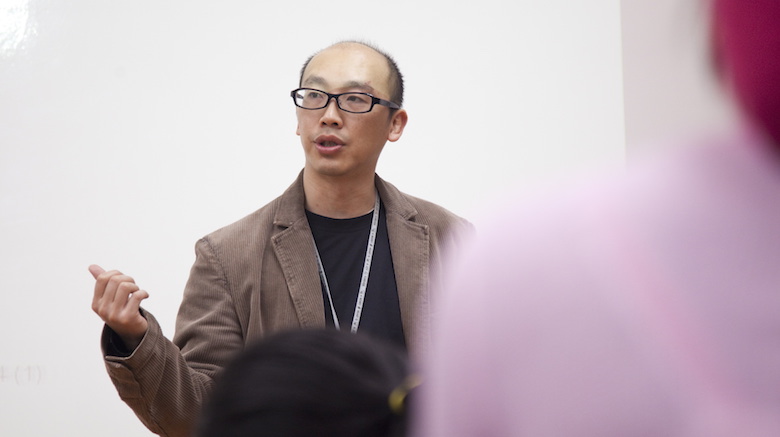Harmonize your mind, body and life. They are the key principles toward coping with stress during a disaster, according to SJC Brooklyn Psychology Associate Chairman Peter Lin, Ph.D.
Dr. Lin led a Zoom conversation with his colleagues from both St. Joseph’s College campuses on Zoom this month, discussing the common psychological issues people often face during a disaster and how to overcome such obstacles.
The conversation was part of a series of casual and constructive conversations about the many ways “Carry On” Teaching supports the faculty. These conversations are organized by the Office of Information Technology Services, the director of online learning, the Faculty Center for Teaching and Learning and the Faculty Technology Committee.
“The key message is that this pandemic is pretty different than other disasters,” Dr. Lin said during the virtual Carry On Working event. “I spent some time studying disasters and mental health. Pandemics are different than other types of disasters. Generally, disasters, like hurricanes or earthquakes, have a very specific time frame … With pandemics, you don’t really know when it’s beginning and you really don’t know when it’s going to end.”
Many of the event attendees — including faculty, staff and administrators — shared the fears they experienced over the past few months. Parents bonded over shared uneasiness about sending children back to school in the fall and nearly everyone agreed that it felt unusual to wear face-coverings in public for the first time.
“We all handled this pandemic differently and we all experienced this pandemic differently,” Dr. Lin noted.
During the event, Dr. Lin cited polls from several sources, including the American Psychological Association, suggesting that Americans across the country are justifiably fearful of the threat of the pandemic. He explained that he wanted to share the data to show that feeling stressed during a pandemic is normal.
Still, he offered a few ways to manage those fears.
He used the acronym S.M.I.L.E. (Safety, Mind, Interconnectedness, Life and Empowerment) to give additional pointers:
Safety (Harmonize the Body)
Focus on reducing your anxiety by reducing your risk. Practice good hygiene and take good care of yourself. This means exercising, eating healthy foods, and getting enough sleep at night.
It’s also helpful to manage the amount of news you consume. Set boundaries and make sure you’re getting your facts right from the source. The best resources for updates on the pandemic, according to Dr. Lin, are the World Health Organization (WHO) and the Food and Drug Administration (FDA), and the Centers for Disease Control and Prevention (CDC).
Calm the Mind (Harmonize the Mind)
Practice mindfulness, as you work on reducing your anxieties. It’s important to reduce stress by engaging in activities that are comforting and healthy. Find or create spaces that focus on something other than the coronavirus.
Interconnectedness (Harmonize the Mind)
Reach out to support networks — virtually — to get the help you need. Remember that it’s okay to talk about your stress, express your feelings and ask for help.
Life (Harmonize Your Life)
Savor the small, positive moments, amplify positive stories, and stay optimistic. Focus on insight, growth and awakening.
Empowerment (Harmonize Your Life)
Find meaningful tasks and roles within your support network to help calm your anxieties. It’s also useful to keep a routine, while increasing your resiliency and sense of control.

